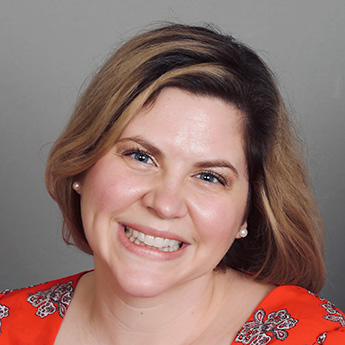Member of the Month: Michelle Owens, DO, FAAHPM
Palliative care physician passionate about physicians’ mental health
By Samantha White

The friendly relationship between a family medicine preceptor and patient is what drew Michelle Owens, DO, FAAHPM, to the specialty. It’s safe to say her work in hospice and palliative medicine had something to do with her interest in physician well-being, a topic she now advocates for and speaks on in various capacities.
Can you briefly describe your career path?
Interestingly, I loved both general surgery and family medicine as a medical student. I initially pursued a general surgery residency in New York, and then realized midway through my intern year that I was missing continuity with my patients, so I followed my heart and pivoted to family medicine residency in Austin, Texas. During my family medicine residency, I was fortunate to have amazing attendings and exposure to all of the many ways family doctors can care for our communities. I gravitated toward hospice and palliative medicine after spending a month in our hospice inpatient unit as an intern during my elective rotation. I completed my hospice and palliative medicine fellowship at UT Southwestern/Parkland Hospital in Dallas, then returned to Austin to start an inpatient and outpatient palliative consultation service at Baylor Scott & White. After three years, I had the opportunity to return to the inpatient hospice unit where I rotated as an intern and cared for patients in our 14-bed unit through the pandemic. I currently practice for a virtual palliative medicine company as their Associate Medical Director and provide PRN primary care coverage at Crossover Health in downtown Austin.
Who or what inspired you to become a family physician?
Dr. Eugene Usberghi in Fort Myers, Florida, was my family medicine preceptor during my third year of medical school. He showed me that being a family doctor meant you could spend your days caring for your friends. His patients and staff loved him, and he was full of joy. I loved his warm bedside manner and the way he genuinely listened to each of his patients.
What unique challenges are represented in your patient community?
Given I have practiced predominantly in hospice and palliative medicine settings, my patient population is often living with a serious illness and may have just been told this news. In addition, some of my patients are also struggling with homelessness, mental health concerns, and other poor social determinants of health. These factors compound the difficult nature of this work and can lead to feelings of helplessness, at times.
Tell us about the work you do in the physician well-being arena.
I had the opportunity to participate as a scholar in the AAFP Leading Physician Well-Being Program in 2021 and currently serve as an ambassador for the program providing insight to current and future scholars, as well as serving as junior faculty. I speak on multiple topics in physician well-being within AAFP, from imposter syndrome, to well women in medicine, to physician leadership. I published an article with KevinMD in 2021 regarding my disdain for the resiliency narrative and how it harms physicians and have had opportunities to speak on this topic further, as well as what steps we can take ourselves to reframe our narrative. I completed the Balint fellowship and am currently finishing requirements to become a credentialed Balint leader through co-facilitating Balint groups for hospice and palliative medicine fellow trainees. In addition, I recently had the opportunity to conduct a workshop on grief in medicine, specifically disenfranchised grief, and how we can ensure we are processing and honoring the losses we have all experienced. I am the co-chair for the Travis County Medical Society Physician Wellness Program, and the co-founder of the Self-Care Forum for the American Academy of Hospice & Palliative Medicine (AAHPM).
Why do you choose to be a TAFP member?
I believe in the power of community, connection, and the ability to both support and co-elevate each other. I am grateful to be a part of the TAFP family.
What do you enjoy doing outside of medicine?
I enjoy spending time with my husband (also a family doc) and my two amazing kids (ages five and three), as well as traveling, enjoying live music, and exploring new restaurants in Austin.
TAFP’s Member of the Month program highlights Texas family physicians in TAFP News Now and on the TAFP website. We feature a biography and a Q&A with a different TAFP member each month and his or her unique approach to family medicine. If you know an outstanding family physician colleague who you think should be featured as a Member of the Month or if you’d like to tell your own story, nominate yourself or your colleague by contacting TAFP by email at tafp@tafp.org or by phone at (512) 329-8666.